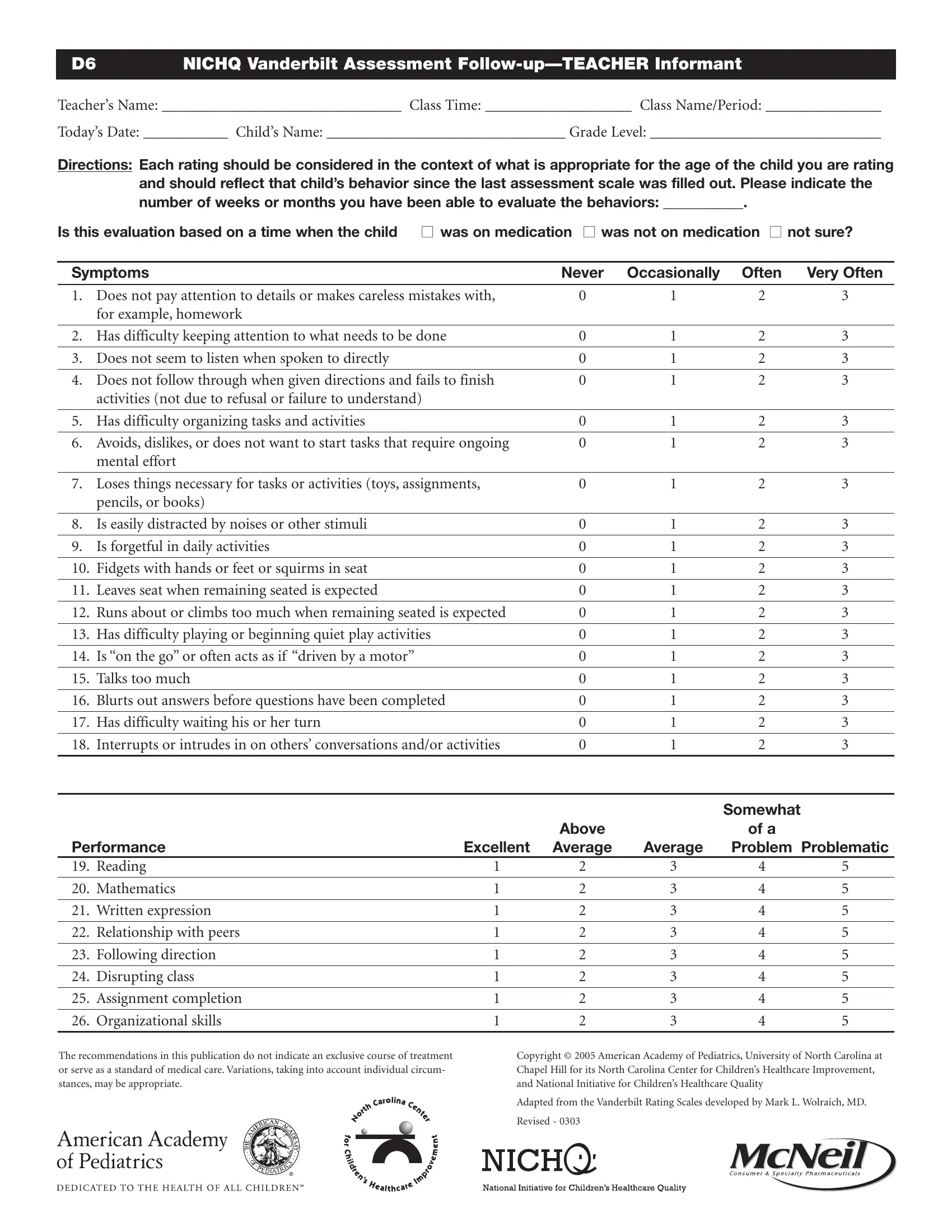Whenever you would like to fill out vanderbilt teacher, you won't need to install any kind of applications - just make use of our PDF editor. The editor is continually upgraded by us, receiving new awesome functions and becoming greater. If you are seeking to start, this is what it's going to take:
Step 1: Click the "Get Form" button at the top of this webpage to access our tool.
Step 2: Using our handy PDF file editor, it's possible to accomplish more than simply fill out blank form fields. Edit away and make your forms seem great with customized text incorporated, or adjust the file's original input to perfection - all supported by the capability to insert any graphics and sign the PDF off.
This document will require you to enter specific information; to ensure correctness, remember to pay attention to the next suggestions:
1. The vanderbilt teacher requires specific information to be typed in. Make sure the next fields are complete:
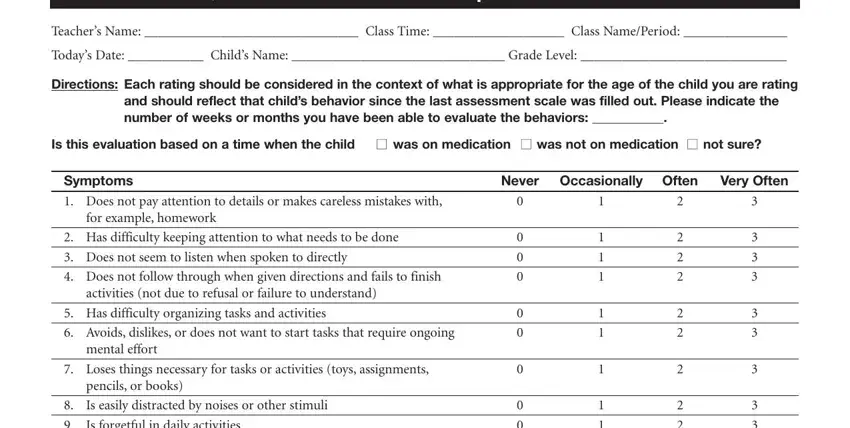
2. Soon after this selection of blanks is filled out, go on to type in the applicable information in all these: pencils or books Is easily, Fidgets with hands or feet or, Performance Reading Mathematics, Excellent, Above Average, Somewhat, of a, Average, and Problem Problematic.
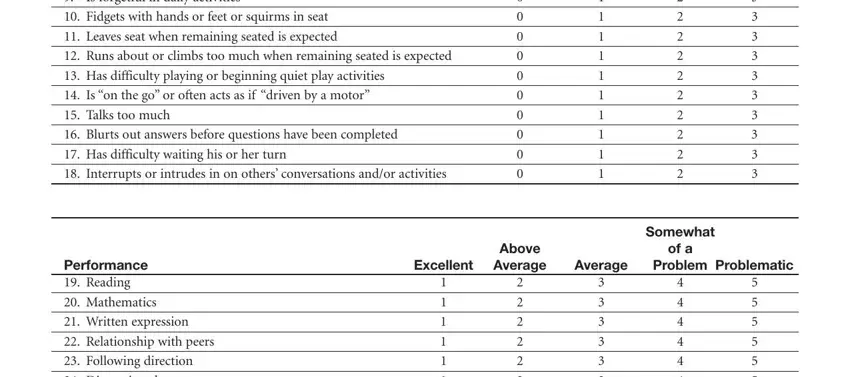
3. The next part is normally hassle-free - fill out every one of the fields in Performance Reading Mathematics, The recommendations in this, Copyright American Academy of, Adapted from the Vanderbilt Rating, and Revised to complete this part.

4. You're ready to begin working on this next portion! In this case you'll have all these D NICHQ Vanderbilt Assessment, Teachers Name Class Time Class, Todays Date Childs Name Grade, Are these side effects currently a, Moderate, None, Mild, Side Effects Has the child, Headache Stomachache Change of, and ExplainComments blanks to fill out.
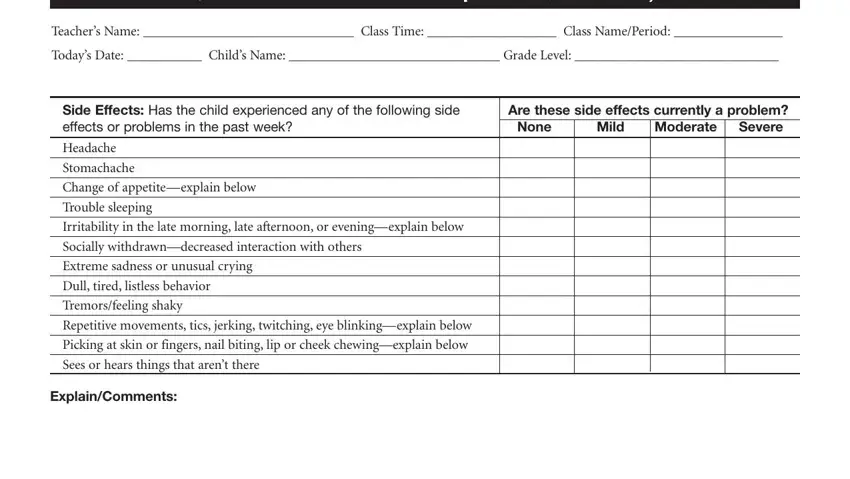
5. And finally, the following final portion is precisely what you need to wrap up before closing the form. The blanks in this case are the following: Please return this form to, Mailing address, Fax number, and Adapted from the Pittsburgh side.
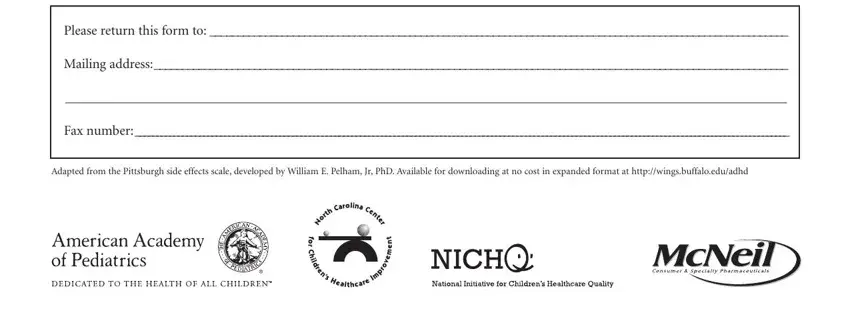
It's easy to get it wrong while filling in the Please return this form to, consequently ensure that you take a second look prior to when you finalize the form.
Step 3: Revise the information you have inserted in the form fields and then click the "Done" button. Get hold of your vanderbilt teacher the instant you join for a free trial. Immediately use the pdf file within your personal cabinet, with any edits and changes automatically synced! FormsPal is focused on the confidentiality of all our users; we always make sure that all personal information processed by our editor stays protected.
